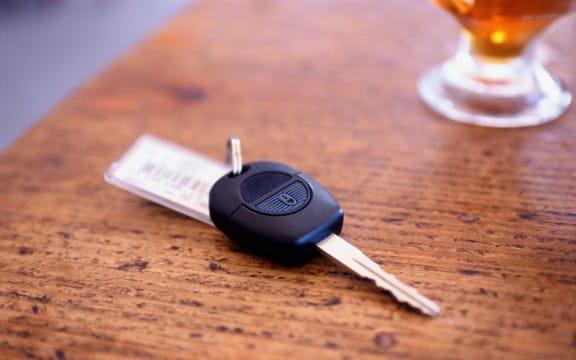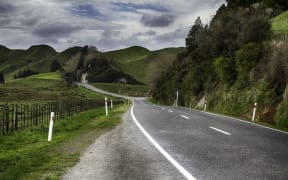New drink-driving limits have caught nearly a third more people - but the number of most serious offenders has dropped 16.6 percent.

Photo: AFP
The limit dropped from 80 milligrams of alcohol per 100 millilitres of blood to 50mg per 100ml last December for those aged 20 and over. Under 20s have a zero limit.
People caught with between 50 and 80mg/100ml are fined $200 and receive 50 demerit points, while those above 80 face charges, as has always been the case.
Statistics show the new system generated $300,000 in the first two months. Assistant Police Commissioner Road Policing Dave Cliff told Nine to Noon it was not a revenue-gathering exercise.
"It's not about making money. It's about changing behaviour."
Demerit points were powerful deterrent; if people kept offending they would lose their licence, and the police saw that threat as the best way of changing behaviour, Mr Cliff said.
Mr Cliff said the new laws brought New Zealand into line with Australia and Europe and aimed to reduce alcohol-related trauma as a result of crashes.
"If you drink alcohol, you become impaired. The more you drink, the more impaired you become," he said.
"So even at that new, lower level, you're still at twice the risk."
The combined number of infringements in the four months since the law was changed was up 30.5 percent on the previous year, to 7930, but those at criminal level - above 80mg/100ml - fell 16.6 percent, to 5096.
Effectively, people were drinking less, Mr Cliff said.
"They're less intoxicated, less impaired, so the flow-through is as a consequence of that we should see reductions in alcohol-related road trauma," he said.
"So once we get the crash data that's really the test. The test 'do fewer people end up being killed and seriously injured'."
Those figures would be available in about a month, Mr Cliff said.
Not a brass razoo
He rejected the assertion the move had been a revenue-gathering exercise, saying police did not get a "brass razoo" for issuing the infringement notices; in fact, it cost money to do so.
"The money flows through to government. We've got no interest whatsoever in that. There's no measures around that at all," he said.
"We do absolutely have targets, and the targets are to keep New Zealanders out of hospitals."
Mr Cliff also rejected the assertion the new batch of speed cameras being installed nationwide were there to top up police coffers, saying they were there to improve road safety.
New digital speed cameras were installed in Auckland and Wellington last year, replacing the old wet film model.
That had let to $1.8 million in fines being collected last year, up from $1.1 million in 2013.
"The whole suite of activity across Wellington and many other districts around the country means we've got more operating hours, we've got more cameras, so we're just rolling out digital cameras around the country at the moment, and they're focussing on crash black spots," he said.
"It's again, if can slow people down, there will be fewer people killed and injured."
Meanwhile, a number of hospitality outlets had responded to the new drink-drive limits by installing breathalysers but Mr Cliff cautioned against relying on them.
Police breathalysers cost about $900 and were regularly calibrated; something bought for $80-$100 was not going to be accurate enough.
As well, people had to remember their blood-alcohol levels would rising if they finished a drink and then immediately got behind the wheel.
"... so we really caution people about relying on those," he said.



